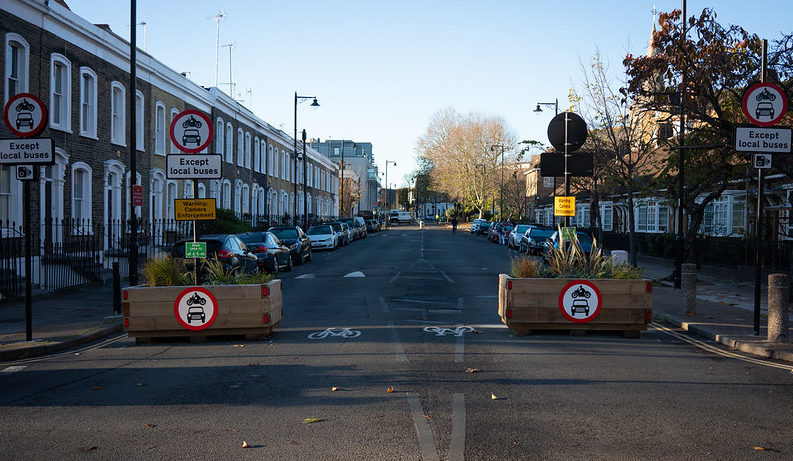
Photo: Tom page (flickr)
UK councils get final say on low traffic neighbourhoods
22 August 2024
by Christopher Carey
UK Transport Secretary Louise Haigh has said any decisions on the introduction of low traffic neighbourhoods (LTNs) or 20mph zones should remain with local authorities, rather than central government.
Speaking on the Streets Ahead podcast, the new transport secretary said local councils would have her department’s “full support” to roll out such schemes.
“It’s really, really difficult for local authorities when they’ve not got that air cover from government,” she said.
“And not only did they not have the air cover, they had the government actively working against them saying ‘No, you’re not allowed to roll out 20mph zones, no, you’re not allowed to roll out LTNs’.
“Those kinds of decisions should absolutely be made at a local level by communities and not dictated to or stoked up by the centre.”
Controversy
Implementing LTNs – which essentially involves placing strategic barriers on certain residential roads to discourage private car use – had increasingly become a political issue under the UK’s previous government, and are also subject to intense criticism online and in some media circles.
Last September former Prime Minister Rishi Sunak dubbed LTNs and plans to reduce speed limits as “hare-brained” and ordered a review into their implementation.
The effect on the emergency services has been highlighted as one issue emanating from the introduction of LTNs.
A July 2023 report on Oxford’s LTNs found that emergency vehicles in the city could be delayed by up to 45 seconds.
The simulation data from Oxfordshire County Council was released as part of a consultation on the trial scheme which has since been made permanent.
Other councils have encountered similar problems with emergency vehicles being unable to access streets due to restrictions in place, with dozens of videos circulating online purporting to show ambulances and fire engines being blocked.
Several local authorities across England have axed or withdrawn plans to introduce schemes in the face of opposition.
In June, the Highways and Traffic Orders Committee for Exeter (HATOC) voted to drop its scheme after a report by Devon County Council highlighted the high levels of public opposition.
The LTN was introduced in August 2023, with barriers blocking some through roads to motorists in residential areas.
HATOC – which is run by Devon County Council along with members from Exeter City Council – heard the scheme had “divided” the city, and council officers working on the project had experienced “abuse and threats”.
Support
Proponents of LTNs argue that it is usually a vocal minority that are against their implementation.
A March 2024 Department for Transport (DfT) report leaked to The Guardian suggested that overall twice as many local people living within LTNs supported the measures than opposed them.
The surveys of over 1,800 residents across four sample schemes in London, Birmingham, Wigan and York, found an average of 45 percent in support and 21 percent opposed.
The department also said LTNs could provide “some benefits” but stressed the importance of “engaging effectively with the whole community” over any potential schemes.
Image: Tom Page (flickr)













